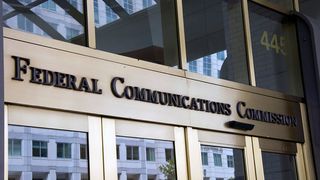ACA Slams Broadband Privacy Order as Error-Ridden Train Wreck

Add the American Cable Association to the parade of parties asking the FCC to rethink, reverse, or otherwise back off its broadband privacy proposal, and ACA was not mincing words, calling the proposal irretrievably off-track and an error-plagued effort that "went awry" from the outset.
"The Privacy Order is a train wreck that the FCC cannot just patch up and place back on the track," said ACA president Matt Polka. "The FCC should reconsider its approach to privacy in its entirety, eliminating the rules adopted in the Privacy Order."
ACA filed a petition for reconsideration with the FCC this week, as did NCTA: The Internet & Television Association, ad agency associations (who use web surfing info to target relevant ads supporting free internet content) and others.
The petition pulled no punches, either, saying the FCC had made errors of fact, law and policy.
FCC Republicans soon to be in the majority are expected to try and reverse the Title II reclassification of ISPs through which the FCC deeded itself broadband consumer privacy oversight, but in the meantime it remains under the FCC's authority.
Given that, Polka said if the FCC must step in, it should replace its initial proposal with "a proposed framework firmly grounded in the Federal Trade Commission's (FTC) successful and time-tested section 5 privacy regime to avoid again imposing requirements that are unlawful and do not reflect the record."
The FCC proposed requiring consumer opt-in permission for ISPs to share web browsing information with third parties for marketing purposes. The FTC, which had authority over broadband consumer privacy before the FCC's Title II move, did not require that opt in and does not require it of the edge providers like Google and Facebook that also collect and share web data.
Broadcasting & Cable Newsletter
The smarter way to stay on top of broadcasting and cable industry. Sign up below
Contributing editor John Eggerton has been an editor and/or writer on media regulation, legislation and policy for over four decades, including covering the FCC, FTC, Congress, the major media trade associations, and the federal courts. In addition to Multichannel News and Broadcasting + Cable, his work has appeared in Radio World, TV Technology, TV Fax, This Week in Consumer Electronics, Variety and the Encyclopedia Britannica.

